Top 6 Natural Supplements To Help Hay Fever

It's here the season many of us dream of but for many have nightmares over... Summer AKA Hay Fever season. For those who suffer with Hay Fever will be too familiar with the symptoms, know what hay fever is and what triggers it? But for those who are more unware with Hay Fever here's a quick break down of what it is and the symptoms.
What is Hay Fever?
According to Allergy UK, Hay fever is a common allergic reaction which occurs at particular times of the year. It is known as seasonal rhinitis, sharing symptoms with perennial (year round) allergic rhinitis, but occurring as a reaction to pollen from grass, trees and weeds during the early spring and summer months.
Grass pollen is the most common allergen (May to July), but tree (February to June) and weed (June to September) pollens can also cause the allergic reaction we know as hay fever. In perennial allergic rhinitis the symptoms continue all year round and usually relate to indoor allergens, such as house dust mites, pets, including birds, or moulds. (1)

Hay Fever Symptoms?
- Blocked Sinuses
- Headaches
- Itchy eyes/ throat
- Post-Nasal Drip (Mucus running down the back of the throat)
- Shortness of breath
- Sneezing, blocked/runny nose
- Tiredness
- Watering, red eyes (allergic conjunctivitis)
Due to side effects of some over the counter medicine its common to find individuals may prefer to chose a natural supplement or remedy to manage their Hay Fever symptoms. We look at 6 of the most popular natural Hay Fever supplements.
Lets take a look at these in a bit more detail...
What is Bromelain?
Bromelain is a group of natural enzymes which are found in the stems, fruit and juice of pineapples (Ananas Comosus), for our capsules we use the stems & fruit of the pineapple. Bromelain is used in remedies across Central & South America and is often taken as a dietary supplement.
Enzymes are a type of protein which act as biological catalysts, these catalysts accelerate chemical reactions in the body and break food down into nutrients such as protein, fats and carbohydrates, the enzymes then take these and break them down again into energy.
It is difficult to get efficient amounts of Bromelain from eating or drinking pineapple normally, as there is little found in the raw source for it to be effective. Due to this, Bromelain is sold as tablets or creams for external administration.
How can Bromelain help with hay fever?
"A number of clinical studies published in the 1960s found that bromelain can reduce sinusitis, or inflammation of the cavities around the nasal passages. More recently, bromelain has also been specifically singled out as a potential natural remedy for hay fever. (3) Bromelain has been shown to relieve hay fever or sinusitis in a number of human clinical studies by working as a natural antihistamine, anti-inflammatory and decongestant. In one such study 85% of people taking bromelain had complete resolution of breathing difficulties and airway inflammation compared to just 53% and 40% in the placebo group respectively" (4).
What is Garlic?
Garlic (Allium sativum L.) is a common household ingredient that has multiple uses and benefits. It has been a popular natural choice for centuries to aid healing and a range of complaints. Peak Supps Garlic Softgels offer the health benefits, without the unpleasant taste associated with Garlic.
The active ingredient in Garlic responsible for its health benefits is called Allicin. Allicin is produced when the garlic is damaged through chewing, cutting or chopping. The enzyme Alliinase turns Alliin into Allicin, this also gives garlic it’s distinctive smell.
How can Garlic help with hay fever?
"Garlic has several benefits alongside its antihistamine abilities, it is extremely helpful in reducing blood pressure, producing good cholesterol, and the allicin components in it can help with sinus infections. Allicin is produced in garlic when it’s crushed and is an incredible natural decongestant due to its strong aroma. The main benefit of garlic in the fight against hay fever is the way it attacks allergens and removes them from the bloodstream completely, making it one of the best superfoods around." (5)

What is Reishi Mushroom?
Organic Reishi Mushroom is sourced from the Ganoderma Lucidum, otherwise known as the Lingzi mushroom. It grows in hot and humid climates all around Asia and has been a staple in Eastern remedies for many years.
Peak Supps Organic Reishi Mushroom Powder contains Polysaccharides, a long-chain carbohydrate which is abundantly found in most foods, this makes Organic Reishi Mushroom Powder a valuable source of carbohydrates.
How can Reishi Mushroom help with hay fever?
"Reishi mushrooms are immune modulatory as they contain polysaccharides. This means they help our immune systems function normally and proportionately. By lessening our body’s heightened response to pollen, they can help to ease hay fever symptoms.
They’re also rich in a compound called lanostan, which has anti-inflammatory and anti histamine properties. This helps stabilise the mast cells that are responsible for releasing histamine. This means that these mushrooms can help address the inflammatory symptoms of hay fever, as well as the root cause of an overloaded immune system." (6)
What is Turmeric?
Turmeric (Curcuma Longa) is a traditional Indian herb/spice that has been famous for centuries. Its popularity was established from its uses in Curries but also as a herbal medicine in Ayurvedic treatments.
Turmeric’s active ingredient is called Curcumin, considered the most beneficial and active ingredient of the herb. Curcumin is renowned for its presumed anti-inflammatory properties alongside other health beliefs. It’s unique yellow colour derives from curcuminoids within curcumin.
How can Turmeric help with hay fever?
"Turmeric is well-known as an anti-inflammatory powerhouse for a good reason. Its active ingredient, curcumin, has been linked to reduced symptoms of many inflammation-driven diseases, and could help minimize the swelling and irritation caused by allergic rhinitis.
Although turmeric’s effects on seasonal allergies haven’t been studied extensively in humans, animal studies are promising. One showed that treating mice with turmeric
reduced their allergic response ." (7)
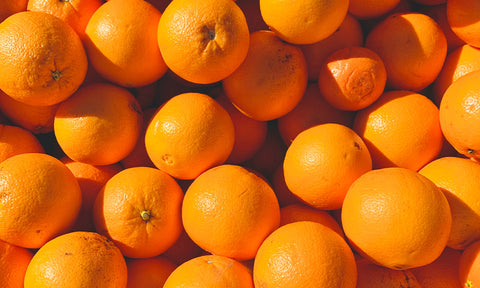
What is Vitamin C?
Vitamin C is commonly taken alongside a healthy, balanced diet to support several bodily functions.
Vitamin C can be found naturally in most fruit and vegetables such as lemons, oranges, broccoli and tomatoes. It is water soluble, meaning that it cannot be stored in the body. Therefore, its important to consume adequate levels of Vitamin C through diet or supplementation.
How can Vitamin C help with hay fever?
"Vitamin C boosts the immune system. It also acts as a natural antihistamine.
According to a 2018 study on vitamin C in the treatment of allergies, oxidative stress plays a key role in allergic diseases. As vitamin C is a powerful antioxidant and anti-inflammatory, it may act as a treatment for allergies.
The researchers observed that high doses of intravenous vitamin C reduced allergy symptoms. They also reported that a deficiency in vitamin C might lead to allergy-related diseases.
Another study from 2000 suggests taking 2 grams (g) of vitamin C daily to act as an antihistamine."(8)
What is Vitamin D?
Vitamin D3 is a fat-soluble nutrient that is essential for human survival. It is produced by the human body when it has been exposed to the sun. Vitamin D is commonly added to dairy products and can be found in foods such as fish and eggs.
Many people are deficient in Vitamin D, this could be due to not getting enough sunlight or Vitamin D rich foods. As the sun is a major source of Vitamin D this means that countries that do not experience much sunlight will need to get their Vitamin D through food or supplements.
How can Vitamin D help with hay fever?
"Vitamin D likely reduces the chance of developing allergies because of its effect on the immune system, which has been demonstrated in many ways. The vitamin has been shown to quickly rid the body of allergy symptoms and is critical to the proper functioning of T-cells, which are a crucial part of the immune system.
A study carried out in Orlando, Florida, showed a positive correlation between Vitamin D and hayfever. The 35 participants (each with seasonal allergic rhinitis), received either vitamin D (4000 IU daily) or placebo for two weeks. The group getting vitamin D experienced fewer daytime problems with sneezing, nasal congestion, and runny noses." (9)

Teas & Herbal Drinks
Many natural teas and herbal drinks may also have natural antihistamine and antioxidants properties.
Popular Natural Hot Drinks:
- All Teas & Herbal Drinks
- Organic Lemongrass & Ginger Loose Leaf Tea
- Organic Elderberry, Rosehip & Hibiscus Loose Leaf Tea
- Organic Turmeric Chai Loose Leaf Tea
- Matcha Green Tea
- Green Tea
- Dandelion Tea
- Turmeric Latte
- Mushroom Mocha
- Peppermint Tea
- Stinging Nettle Tea
For healthy & delicious drink recipes check out our blog!
IMPORTANT NOTICE* Advice is for information only and should not replace medical care. Please check with your GP before trying any remedies.
Sources Tagged within blog & below:
| Reference | Source | Link |
| (1) | Allergy UK | https://www.allergyuk.org/information-and-advice/conditions-and-symptoms/11-hay-fever-allergic-rhinitis?gclid=EAIaIQobChMI_YD6w-vQ8QIV6YBQBh1-4giaEAAYASAAEgKsX_D_BwE |
| (2) | HealthLine | https://www.healthline.com/health/allergies/best-natural-antihistamines#quercetin |
| (3) | Heal With Food | https://www.healwithfood.org/allergicrhinitis/bromelain-pineapple-juice-for-hay-fever-relief.php#ixzz70PUsKTtI |
| (4) | Scientific Wellness | https://www.scientificwellness.com/blog-view/natural-hay-fever-relief-with-bromelain--250 |
| (5) | Fushi | https://www.fushi.co.uk/healthy-lifestyle-news/16-natural-remedies-hay-fever/ |
| (6) | Liz Earle Wellbeing | https://lizearlewellbeing.com/healthy-food/benefits-reishi-mushrooms/ |
| (7) | Health Line | https://www.healthline.com/health/seasonal-allergies-best-foods#3.-Citrus-fruits |
| (8) | Medical News Today | https://www.medicalnewstoday.com/articles/323276#vitamin-c |
| (9) | HTC Health | https://www.htc.co.uk/post/vitamin-d-and-hayfever |

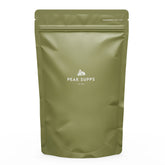

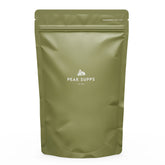

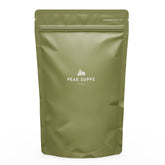

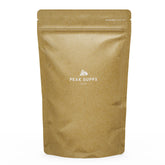

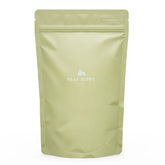

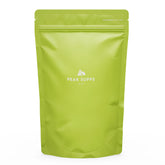

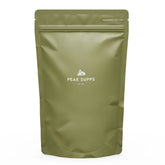

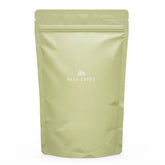

Leave a comment
Please note, comments need to be approved before they are published.